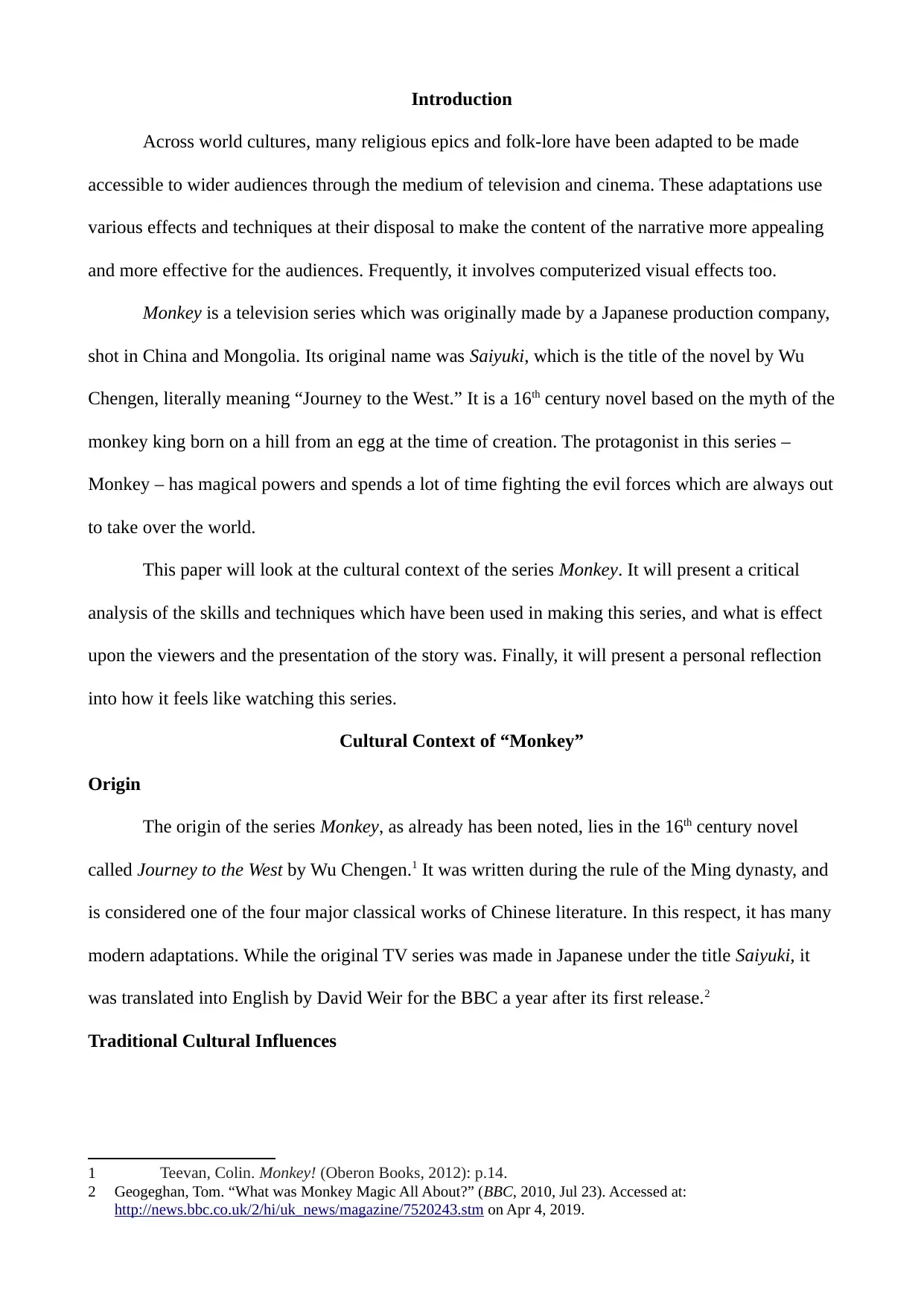This paper looks at the cultural aspects which underlie the TV series called Monkey. It was a TV series which aired in the late 1970s, and went on for two seasons, including 52 episodes in all. It is taken from a classical Chinese novel from the 16th century which combines elements from Chinese Buddhism, Confucianism, and Taoism. Further, it presents these elements in an action-packed modern light. It was produced by a Japanese television production company, and later translated into English by the BBC and aired in Western countries. This paper will argue that Monkey combines the most basic tenets of Chinese thought with techniques and skills of modern television production such as cinematography, mise-en-scene, script-writing techniques, characterization, in order to create a unique and popular series which is not only enjoyable to the masses, but also gives them a relishing experience of their religious and social culture.
![[object Object]](/_next/static/media/star-bottom.7253800d.svg)
![[object Object]](/_next/static/media/star-bottom.7253800d.svg)






